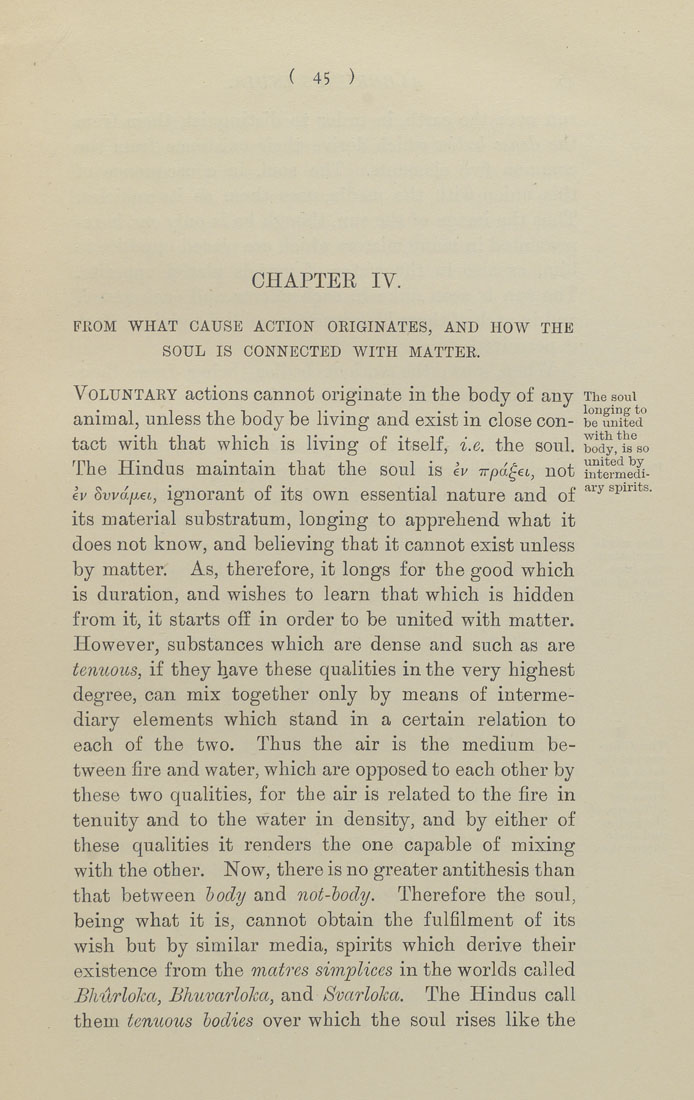Bīrūnī, Muḥammad ibn Aḥmad, Alberuni's India (v. 1)
(London : Kegan Paul, Trench, Trübner & Co., 1910.)
|
||
|
|
|
|
| Page 45 |

( 45 ) CHAPTER IV. FEOM WHAT CAUSE ACTION OKIGINATES, AND HOW THE SOUL IS CONNECTED WITH MATTER. Voluntary actions cannot originate in the body of any The soui animal, unless the body be living and exist in close con- bTunlted*' tact with that which is living of itself, i.e. the soul. body,is\o The Hindus maintain that the soul is Iv irpd^eL, not Stom^di- €1' Suj/a/xej, ignorant of its own essential nature and of ^^'^ spirits, its material substratum, longing to apprehend what it does not know, and believing that it cannot exist unless by matter. As, therefore, it longs for the good which is duration, and wishes to learn that which is hidden from it, it starts off in order to be united with matter. However, substances which are dense and such as are tenuous, if they have these qualities in the very highest degree, can mix together only by means of interme¬ diary elements which stand in a certain relation to each of the two. Thus the air is the medium be¬ tween fire and water, which are opposed to each other by these two qualities, for the air is related to the fire in tenuity and to the water in density, and by either of these qualities it renders the one capable of mixing with the other. Now, there is no greater antithesis than that between body and not-hody. Therefore the soul, being what it is, cannot obtain the fulfilment of its wish but by similar media, spirits which derive their existence from the matres simplices in the worlds called Bhurloka, Bhuvarloka, and Svarloka. The Hindus call them tenuous bodies over which the soul rises like the |
| Page 45 |







